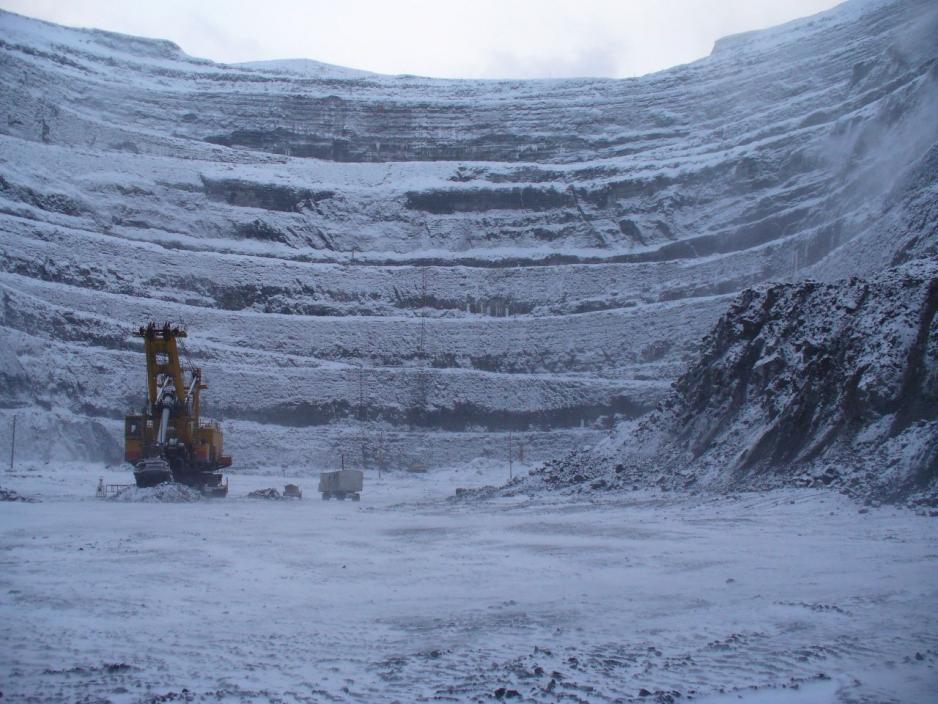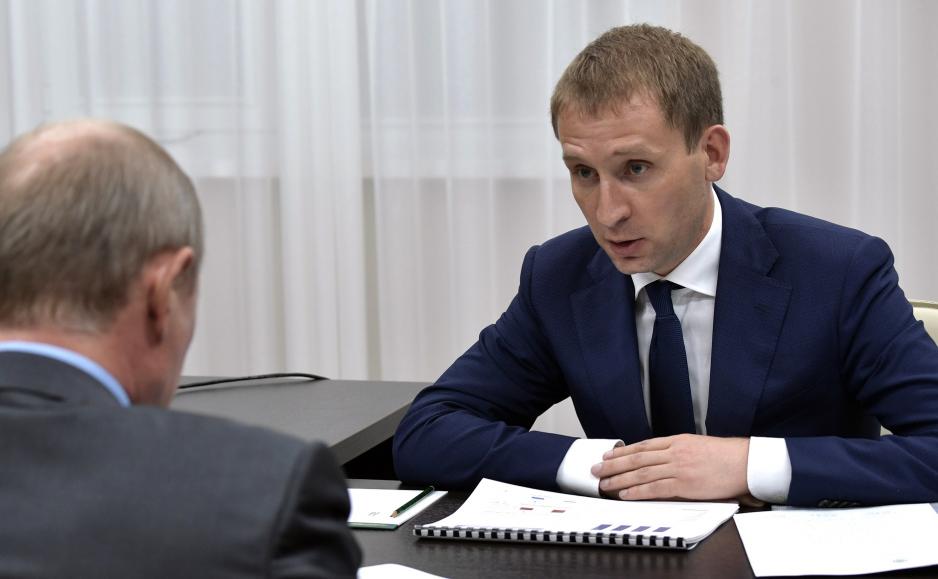Russian Government Supports Tax Breaks for Arctic Investments

The Udachnaya pipe, an open-pit diamond mine in Sakha Republic, Russia. Proposed tax measures are expected to raise investment in Arctic mines. Photo: Khabib Khamir, Wikimedia Commons.
The Russian government has recently supported legislation to cut taxes and introduce incentives for investment into Arctic projects.
This week, the State Duma Budget and Tax Committee recommended amendments to the Russian tax code to provide benefits for investors who implement new projects in the Far North. The bill is intended to make investments for large corporations willing to work in the Far North easier and faster to set up.
The amendments support the provision of resident status, that comes with tax and non-tax benefits, to businessmen who are willing to invest at least 10 million rubles (approx. €150,000) in northern projects. The bill simplifies the system which gives land plots to investors and protects their interests in court.
Big Business
The bill is preferential to the extractive industries working north of the Arctic Circle. The amendments provide investors:
- 5% severance tax rates on the extraction of oil and 1% on the extraction of gas on Russia’s shelf, over a period of 15 years,
- 0% severance tax rates on liquefied natural gas (LNG) and gas processing projects on the Russian continent for a period of 12 years (benefits similar to those of Yamal LNG),
- Payment of severance taxes after 17 years of LNG production,
- Additional non-tax benefits, including the opportunity for the creation of free trade zones and round-the-clock checkpoints.
The proposed investor-focused benefits are intended to address the issues of under-population and other human development issues, expresses newly appointed head of the Ministry for Development of the Russian Far East and Arctic Alexander Kozlov. He argues that the way to halt the depopulation of the Russian Arctic is to encourage job creation through tax incentives for employers.
The initiative is intended to create several hundred thousand jobs in the Russian North. Despite lost tax revenue, it is said that the tax deduction will have a positive effect on the budget system from the additional created business. According to the committee, the aggregate benefit for the Russian budget will amount to 1.9 trillion rubles (approx. €27 billion).

Minister for Development of the Russian Far East and Arctic, Alexander Kozlov (then-Governor of the Amur Region), meeting with President Vladimir Putin in 2017. Photo: Kremlin.ru
Local Reactions
Supporters of the tax breaks say that the proposed measures will attract an inflow of investment into the Arctic’s extractive industries and encourage the development of small and medium enterprises (SMEs). For example, the creation of a mining project involves the construction of permanent housing, power plants, port facilities, an airport, and food and other services. The supporters’ argument is that the tax breaks will benefit SMEs by giving them new partnership business opportunities.
"The climate, nature and narrowness of the market make it difficult for small businesses to operate in the North. Large corporations support SMEs by conducting large projects. These create smaller, partner projects that are primarily service-oriented,” says Victor Zubarev, Coordinator of "Business Russia" in Siberia.
On the other hand, a representative of Indigenous people pointed out that the bill does not include Indigenous communities. The Indigenous communities of the North are not considered enterprises and are therefore excluded from the law, according to Vice-Speaker of the Assembly of Deputies of the Nenets Autonomous District, Matvey Chuprov.
“It would be good if Indigenous communities could be involved in the benefits. For example, the investment threshold of 10 million rubles is the cost of one slaughter house, which could be built by the Indigenous community. In this case, they could enjoy benefits,” says Chuprov.
It can be argued that the tax incentives by themselves will not be enough to attract investment. This is because the most important thing that restricts investment in the Arctic is the lack of infrastructure, according to Deputy of Legislative Assembly of Karelia, Maxim Vorobyov. He argues that the construction of new roads and other fundamental forms of infrastructure is just as important as bringing business to the North.
Russia’s Arctic Economy
This recent initiative to boost investment in the Arctic is part of Russia’s Arctic economic strategy. Russia’s main economic interests in the Arctic are the production of hydrocarbons and the development of the Northern Sea Route. The government is supporting these industries with investment-inducing legislation. In January 2020, the entire Russian government resigned and a new government was formed after Putin proposed a number of constitutional reforms. What is the new Russian government’s focus regarding the Arctic economy?
“Laws should be created in the Arctic zone to create favorable conditions for private investment, development of resource deposits, development of the Northern Sea Route and the creation of jobs,” said Russian Prime Minister Mikhail Mishustin at the end of January 2020.
These kinds of laws are currently being approved by the Russian government and lauded for their potential to create jobs. The modern Russian North experiences widespread unemployment and a lack of infrastructure. Young people are still leaving for the city for work or study and not returning.
Along with the Arctic hydrocarbon industry, the mineral resource and timber industries will be supported by the government initiatives to “make the Arctic popular among Russian youth.” The Minister of Development for the region declares that over the next 15 years, several hundred projects will be launched in the Arctic and 200,000 jobs will be created.

